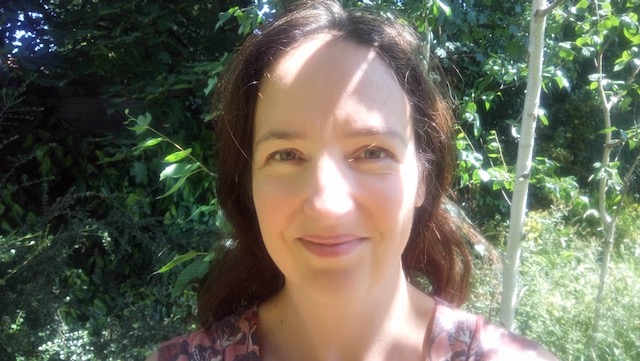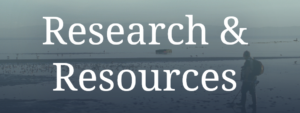I love St Albans! I love the fact we’ve got real community spirit. I’ve been blown away by our city’s response to the devastating coronavirus crisis. Council employees, local businesses, schools, community organisations and neighbourhoods have all gladly risen to the challenge to support the vulnerable members of our society, and each other. We will keep it up, and we will get through this.

This blog was written by Kate Swindells, a founder member of HEART Community Group. Kate is the organiser behind the https://www.facebook.com/groups/GrowSopwell initiative. Kate was recently featured in the Independent newspaper’s #HappyList celebrating 50 remarkable heroes in a crisis who have helped others during the Covid-19 pandemic.

Importantly, I believe there is now a greater understanding of how our complex, just-in-time, globalised way of life can be vulnerable to shocks like this. Toilet paper anybody?
This understanding is leading to the increasing realisation that we must do more, to be more resilient as a community, and as a nation. And as we continue to find a way through the social and economic fallout from COVID-19, we must also realise that we still have the impacts of climate change to face.
The climate emergency
2020 has been another significant year for extreme weather events. California’s first ‘gigafire’ and one-third of Bangladesh submerged following a super-cyclone are crises that immediately spring to mind. These substantial impacts are occurring now, at a global temperature rise of just 1°C above pre-industrial levels.

In our efforts to keep global warming under 1.5oC, we must face some uncomfortable truths:
- Even if emissions stop tomorrow, there is still more warming ‘baked in’, due to lags in how our climate systems respond.
- Current pledges by governments to reduce emissions are not yet enough to keep global temperature rise below even 2°C. At present, the world could be heading for a global average temperature increase of 3°C or more. (Fingers crossed for greater reduction ambitions next year and beyond).
- The speed and magnitude of emissions reduction needed is an incredibly tall order, if we expect a continuation of ‘business as usual’ life.
“A fact not repeated enough is that emission reductions from the Covid shutdown (about 7-8% globally) need repeating annually, for a decade, to have a chance of keeping warming below 1.5oC.”
Jake Ainscough, All-Party Parliamentary Climate Change Group blog
4. We also need to consider tipping points – a tipping point is where a changing climate could push parts of the Earth system into abrupt or irreversible change
5. Since we live in an inter-connected, globalised society, we need to realise that climate impacts elsewhere in the world will affect our lives here in the UK.
Over the past five years, more evidence has accumulated to show how climate change is disrupting supply chains and food security. The impacts are hard to model, and in a 3°C+ world they could increasingly affect trade, conflict, finance, and ultimately global stability. The complex risk cascades we will experience require coordinated action from across UK Government departments and the devolved administrations. The UK needs more stress testing, more stockpiles, more system redundancy, more diversification and ‘substitutability’.
From UK Climate Risk Conference: Is the Uk on track to adapt to climate change?
The need for adaptation and greater resilience
What is becomingly increasingly clear, and increasingly admitted, is that alongside the race to achieve net zero emissions (mitigation), we must assess, plan and adapt to climate risks.
Undertaking adaptation measures doesn’t mean we have failed or have given up on reducing emissions. Nor does it mean we should give up on fighting for climate justice for people and the rest of nature in countries that are already on the front-line of this crisis.
Climate Change Mitigation Versus Adaptation
“Imagine a car racing toward a brick wall, too fast to stop in time. The driver has two primary tools—the brakes, which will slow the car down, and the airbags, which will cushion the passengers when they crash. Mitigation is the brakes—it will slow climate change and reduce the overall magnitude of change. Adaptation is the airbags—it will protect and cushion people and nature as climate change progresses. We need both.
From: Climate Ready Communities, Geos Institute https://climatereadycommunities.org/
Local, resilient, and kind communities
Whilst we wait for institutions and government to work out and implement national- and international-level adaptation policies and strategies, we can be doing our bit to continue with building local, resilient, and kind communities.
This is exactly what Sustainable St Albans and other Transition Town organisations have been working on tirelessly for many years, in response to anticipated climate and ecological disruptions, and in the face of resource depletion.
We need more and more people to realise that this is what’s needed, and to join us!
Everyone has a part to play in the race for resilience.
“I would like to see us launch a race for resilience. We have a race for zero that’s been launched in association with the COP, where we’re getting businesses and organizations and community groups and local authorities all signing up to say they’re going to get to net zero. I would like to see businesses and local authorities and community groups all signing up to say that we’re going to be prepared for the changes that the climate is going to be bring. We’re going to be prepared to make sure we live in a successful and resilient country and that we contribute to making the rest of the globe a successful and resilient world.
Baroness Brown, Deputy Chair of the Committee on Climate Change
What can we do?
All the things that make St Albans a better place!
It starts with the simplest things..
… like connecting with your neighbours: checking in on them, celebrating at street parties, passing on outgrown kids’ clothes, sharing things – food, power tools, skills.
It’s shopping locally, cooking seasonal food more often…
Buying second-hand, offering unwanted items away for free. Reducing your water consumption and your waste. Insulating your home well. It’s appreciating and protecting nature.
Can you contribute more?
Not everyone has the time, headspace or spare cash to do more but if you can, start by considering where your energies lie. What can you do that will make your community more resilient, preferably with the beneficial side-effects of increased health & wellbeing and a lower carbon footprint?
Help out or donate to existing initiatives or start something new...
The foodbanks, Communities 1st , residents associations, and other community organisations always need support. Engage with uplifting community groups like St Albans Rainbow Trail. Sustainable St Albans is always looking for new volunteers to get involved. Or how about community gardening, local renewable energy projects, setting up a Library of Things, taking part in a repair event, offering skills and services that contribute to vibrant community life?
Talk to your friends and family...
And talk to your local councillors. Inform them. Ask them to put this high up on the agenda. To write an email directly see https://www.writetothem.com/
We are already doing a great job here in St Albans, but there is always scope for more. Can you help to Build Back Better and contribute to the resilient, connected, local community that we are increasingly going to need?
Above all, let’s be kind. In uncertain times, let’s be certain that we can count on each other.
How resilient are you and your community?


